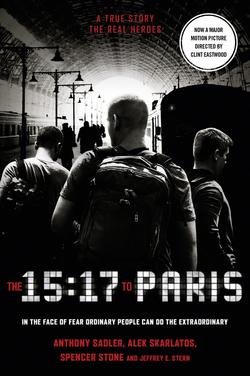Читать книгу The 15:17 to Paris: The True Story of a Terrorist, a Train and Three American Heroes - Anthony Sadler, Anthony Sadler - Страница 11
AYOUB
ОглавлениеIn 1985, European officials met in Schengen, Luxembourg, to hammer out an agreement. The purpose was free trade. European countries had similar values, and if you could ease passage between them, you could make trade easier. Easier trade was good for everyone; all economies would benefit. All countries would get richer as goods and services passed seamlessly between them, with fewer regulations, fewer taxes, fewer holdups at border crossings.
The idea was to turn the whole territory into effectively one country—once you were in, you were in. Internal borders would become almost meaningless.
For someone traveling from outside, the challenge would be getting into Europe. Once you arrived, you could move within the continent at will. If you had a Schengen visa, you usually wouldn’t get ID checks. The agreement also made it easier for foreigners, like American tourists, to vacation in Europe. They didn’t need visas at all, and after they arrived in one of the participating countries, they never had to show their passports again, even when they moved between countries.
Not all of Europe signed on to the Schengen Agreement immediately, but among the first seven members were three critical ones: Belgium, France, and Spain. It made Europe, or at least those countries, more appealing to American tourists. And to immigrants.
Ayoub El-Khazzani was born in Morocco, and lived in a place called Tétouan. Its name came from the Berber word for “eyes,” a reference to the watersprings that littered the city; Ayoub was raised in something of a Moorish paradise. His family was not wealthy, not even middle class, but the world that surrounded him was luxuriant, suffused with souks overflowing with handicrafts, pomegranate and almond trees lining the hills. It was a North African crossroad; the clothes and crafts in shops testified to all those who had marched through and deposited part of their culture there, most prominently the Berbers, but also the Moors and Cordobas. It was mostly Muslim and, in a way, a reflection of a bygone period thirteen hundred years earlier, when the Muslim world was at its richest, a cultural and intellectual powerhouse, a place with security and civil liberties where even Christians and Jews were protected because they too were sons of Ibrahim. And although they paid extra taxes for their beliefs because they were of course still infidels, they also didn’t have to fight in the army. Things were fair. Things were balanced, stable, orderly. The great Caliph Usman came along and eliminated poverty. Great scientific discoveries emerged from that place. Al-battani, the astronomer and mathematician who fine-tuned the concept of years lived then, as did the father of optics, Ibn al-Haytham, the man who proved that eyes don’t emit light, but take it in. Al-Farabi, the greatest philosopher after Aristotle, studied there. It was the time of the House of Wisdom, where philosophies were translated from Greek to Arabic so they could end up in the West.
The world owed the caliphate its knowledge; the West owed Muslims.
Ayoub was well east of ancient Mesopotamia, the site of the explosion of culture that emerged where the Tigris collided with the Euphrates, and that became known as the cradle of civilization. But his city gave the cradle a run for its money. It resembled the place and the time that continue to produce such powerful yearning in its descendants.
And which also, occasionally, produces such extraordinary violence in those who believe they can return the world to that utopian period, if enough trauma can be delivered to the powers corrupting Muslims that they shrivel up and retract like severed arteries.
Despite the wealth around him, work was sparse; Ayoub was near that rich, verdant world, but not of it. His family was poor.
In 2005, Ayoub’s father was forced to board a ferry for the short ride to Spain so that he might find better work. Eventually he got a job dealing in scrap metal, extracting value from the things other people discarded.
He was gone for two years, so Ayoub went through his adolescence straddling two kinds of lives. Not fatherless, but his father was absent, living in another country, living on another continent, and yet not even a hundred miles away. There, and not there. Close, but in another world.
